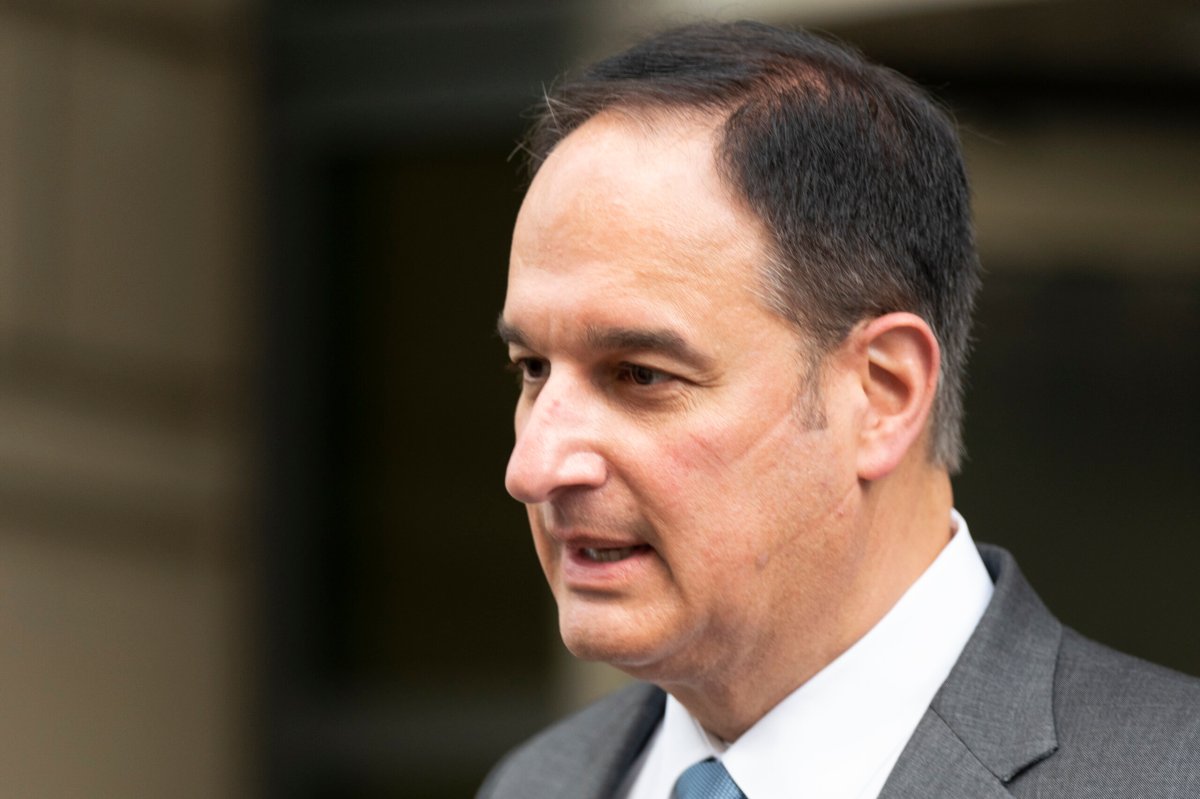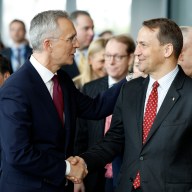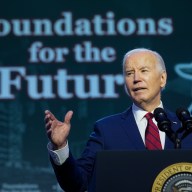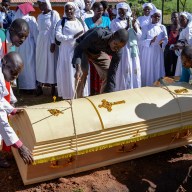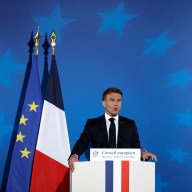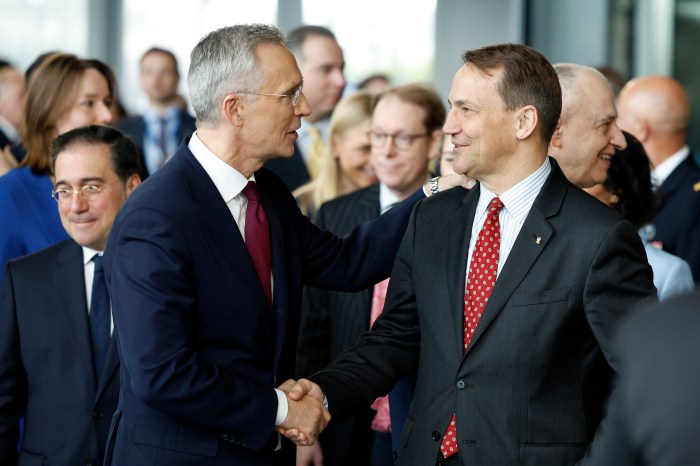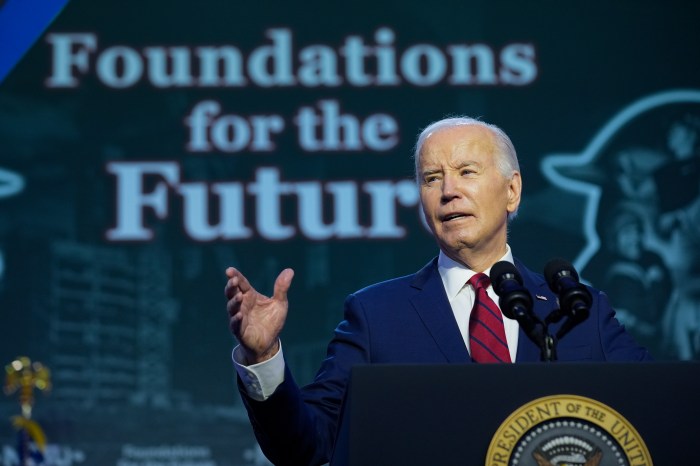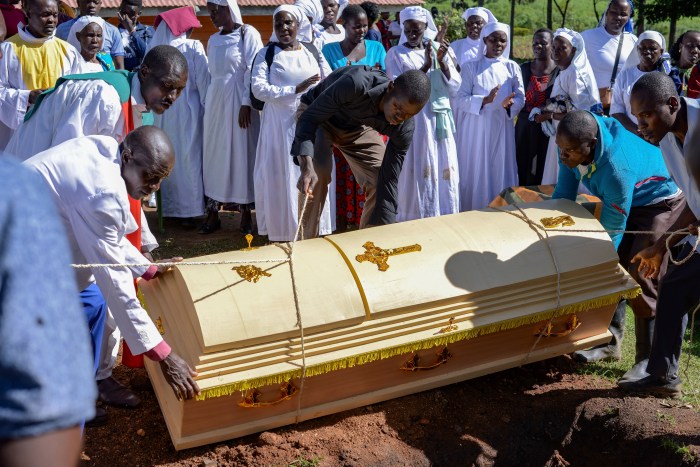WASHINGTON (AP) — A lawyer for Hillary Clinton’s 2016 presidential campaign hid his partisan interests from the FBI as he pushed “pure opposition research” related to Donald Trump and Russia in the weeks before the election, a prosecutor asserted Friday during closing arguments of the attorney’s trial.
But Michael Sussmann’s legal team denied prosecutors’ claims that he lied. And even if jurors believed Sussmann did lie, the defense said the alleged false statement did not matter because he was presenting national security information that the FBI would have looked into no matter the source. At the time of Sussmann’s meeting with the FBI in September 2016, the bureau was already investigating whether Russia and the Trump campaign were colluding to sway the election won by Trump that November.
“It was a very contentious time. The Russians had hacked the DNC. They were leaking emails. And there was an ongoing FBI investigation irrespective of this,” Sussmann lawyer Sean Berkowitz told jurors, referring to the Democratic National Committee. “And that was viewed as incredibly serious.”
The case is the first courtroom test of special counsel John Durham’s work since his appointment three years ago to search for government misconduct during the investigation into potential ties between Russia and Trump’s campaign. Jurors began deliberating Friday afternoon.
A guilty verdict would be cheered by Trump and his supporters, who have looked to the Durham investigation to undercut the original Trump-Russia probe that they have long seen as politically motivated. But the case against Sussmann is narrow in nature, involves a peripheral aspect of that probe and alleges misconduct by a tipster to the government rather than by anyone at the FBI or any other federal agency.
Nonetheless, the two weeks of testimony in federal court in Washington have exposed the extent to which Democratic interests, opposition research, the media and law enforcement all came to be entangled in the run-up to the presidential election.
Prosecutors have portrayed Sussmann as determined to gin up investigations into Trump that could then be disclosed to the media and yield stories negative to his campaign.
“It wasn’t about national security,” said Jonathan Algor, a Durham team prosecutor. “It was about promoting opposition research against the opposition candidate, Donald Trump.”
Sussmann is charged with a single count of making a false statement. That charge carries a maximum five-year prison sentence, though if convicted, Sussmann is likely to get far less — if any — prison time. He did not take the stand during the trial.
The case turns on a Sept. 19, 2016, meeting in which Sussmann presented the FBI’s top lawyer, James Baker, with computer data that Sussmann said suggested a secret communications backchannel between a Russia-based bank and the Trump Organization, the candidate’s company.
Such a backchannel, if it existed, would have been explosive information at a time when the FBI was examining links between Trump and Russia. But after assessing the data, the FBI quickly determined that there was no suspicious contact at all.
Prosecutors say Sussmann lied to Baker by saying he was not participating in the meeting on behalf of a particular client. They say he was actually there on behalf of the Clinton campaign and another client, a technology executive whom the Durham team says tasked researchers with looking for internet traffic involving Trump associates and Russians.
Sussmann lied about his clients, prosecutors allege, to give the data extra credibility because he figured the information would not be investigated if the FBI thought it was mere opposition research being pushed by the Clinton campaign.
“The defendant knew he had to hide his clients if there was any chance of getting his allegations to the FBI — and that, ladies and gentlemen, is why the defendant lied,” Algor said.
To convict, prosecutors need to show not only that Sussmann lied but that the lie was material — namely, that it mattered or at least could have mattered to the FBI’s work.
Algor said the fact Sussmann repeatedly billed the Clinton campaign for his work on the Alfa Bank matter is proof he was acting on the campaign’s behalf when he met with the FBI. But Berkowitz noted that Sussmann billed his taxi ride to FBI headquarters for the meeting itself to his law firm, rather than to the campaign.
Berkowitz also tried to cast doubt on what exactly was said in the meeting. Prosecutors showed jurors a text message Sussmann sent Baker the night before the meeting in which he requested a sit-down on a sensitive matter and said he would be coming by himself and not on behalf of a client.
But Berkowitz reminded jurors that the only false statement that was charged took place during the following day’s meeting, and that no one can be sure exactly what was said because Baker and Sussmann were the only participants and neither took notes.
Berkowitz also suggested it was technically accurate if Sussmann said he was not acting on behalf of a client because Sussmann never asked the FBI do anything with the information he was providing.
“When you go somewhere on behalf of a client, you’re advocating for the client, you’re asking for something,” Berkowitz said. “Mr. Sussmann didn’t ask Jim Baker for anything.”
The two sides also quibbled over Baker’s testimony, with Berkowitz citing dozens of instances in which Baker said on the stand that he did not recall or could not remember something. Prosecutors, meanwhile, seized on the fact that Baker said he was “100% confident” that Sussmann had told him that he was not acting on behalf of a client and that he probably wouldn’t have taken the meeting if he had been told otherwise.
“Ladies and gentlemen, would James Baker come on the stand under oath, a former high-ranking FBI official, and subject himself to the penalty of perjury if it weren’t true,” another prosecutor, Andrew DeFilippis, told jurors on Friday. “No, he wouldn’t do that. None of us would do that, would take that risk.”
Durham has so far charged three people. The case against Sussmann is the only one to have reached trial.
Follow Eric Tucker on Twitter at http://www.twitter.com/etuckerAP

